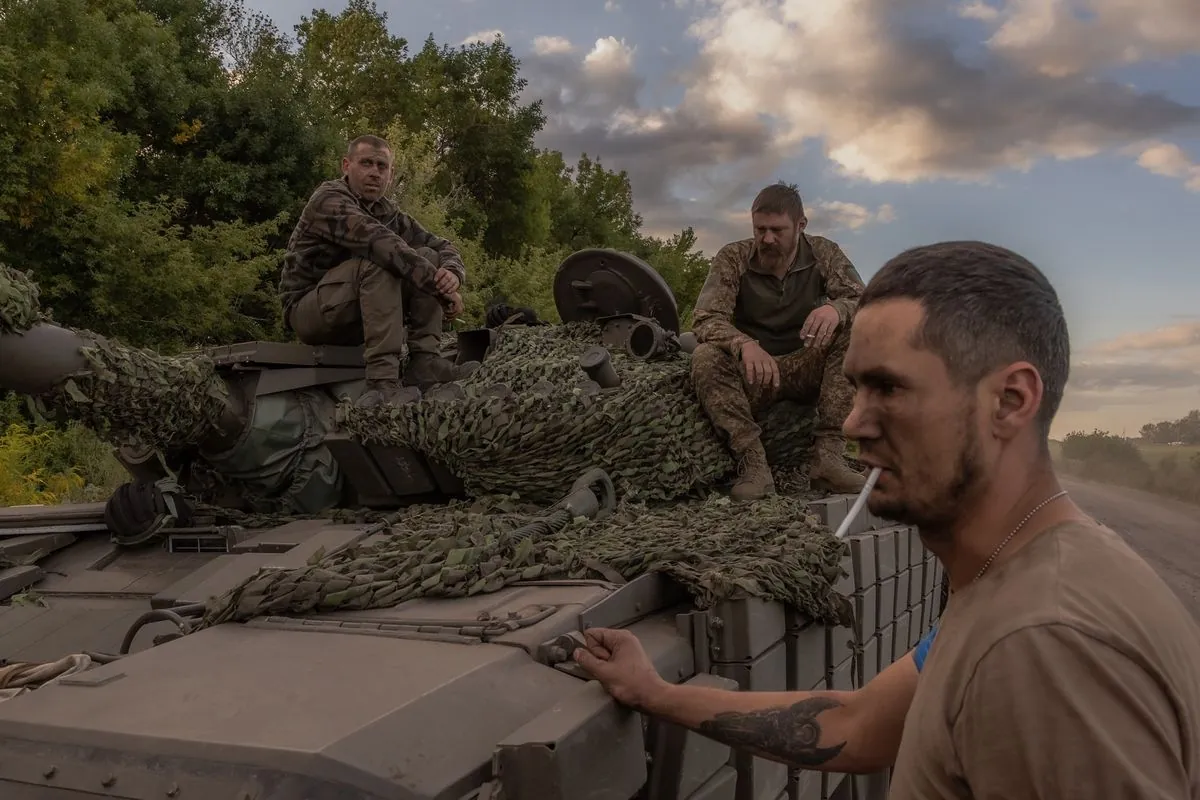Ukraine's Surprise Offensive in Kursk: A Game-Changing Move
Ukraine launches a successful offensive in Russia's Kursk region, capturing territory and prisoners. The operation aims to shift war dynamics and pressure Putin's regime, potentially altering the conflict's course.

In a significant development in the ongoing conflict, Ukrainian forces have launched a successful offensive in Russia's Kursk oblast. The operation, which began on August 6, 2024, has caught both Russian forces and Western allies by surprise, marking a potential turning point in the war.
The offensive has been characterized by its efficiency and strategic execution. Ukrainian intelligence identified weak points in Russian defenses, and special forces prepared the ground in advance. The attack combined cyber operations, armored units, artillery, infantry, and engineering specialists in a coordinated effort to dismantle enemy defenses.
"Our forces have executed a textbook all-arms maneuver, effectively neutralizing Russian defenses and making significant territorial gains."
Ukraine's success in this operation stands in stark contrast to the much-publicized 2023 counter-offensive, which faced significant challenges due to extensive Russian preparations. This time, the element of surprise has played a crucial role in Ukraine's favor.
The offensive has resulted in the capture of approximately 400 square miles of territory and an estimated 2,500 Russian conscripts. An additional 3,000 Russian troops are reportedly surrounded south of the Sejm river.

This operation carries historical significance, as the Kursk region was the site of the largest tank battle in history during World War II in 1943. Both Russian and Ukrainian military strategists are well aware of the region's strategic importance.
Volodymyr Zelensky's government aims to achieve several objectives through this offensive:
- Boost morale among Ukrainian forces and civilians
- Demonstrate Ukraine's capability to its Western allies
- Draw Russian forces away from occupied Ukrainian territories
- Gain leverage in potential future negotiations
- Pressure Vladimir Putin's regime by making the war less popular within Russia
The offensive has also targeted key Russian infrastructure, including bridges, gas installations, and supply depots. The nuclear power station in Kursk is now potentially at risk, and approximately 130,000 Russian civilians have been displaced.
Putin's response to the offensive has been to increase media control and issue assurances of victory. He has appointed Aleksey Dyumin to lead "Operation Revenge" but has not significantly diverted troops from other fronts, particularly the Donbas region.
The conflict's impact extends beyond the battlefield. Russia faces economic challenges, including inflation, goods shortages, and labor shortages exacerbated by emigration and conscription. These factors may contribute to growing dissatisfaction among Russian elites and the general population.
As the conflict evolves, Ukraine's strategy appears focused on undermining Putin's position and making the war increasingly unpopular within Russia. The success of this offensive may accelerate internal pressures on the Russian leadership, potentially leading to significant changes in the war's trajectory.


































